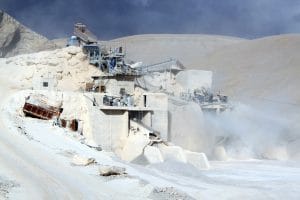 Streamlining the process of electrical thermal management is one of the most prominent benefits of advanced heat exchangers. However, it isn’t just their ability to prevent electrical overheating that makes them such a benefit to modern industries. For example, in addition to providing high-performance thermal management at reduced costs and improved efficiency, heat exchangers also help electrical enclosures maintain a high level of ingress protection to ensure that sensitive electrical components within it remain safe from potentially harmful contaminants. While this is always important, it’s especially so in conditions where dust, dirt, moisture, volatile substances, and more are common components of the environment.
Streamlining the process of electrical thermal management is one of the most prominent benefits of advanced heat exchangers. However, it isn’t just their ability to prevent electrical overheating that makes them such a benefit to modern industries. For example, in addition to providing high-performance thermal management at reduced costs and improved efficiency, heat exchangers also help electrical enclosures maintain a high level of ingress protection to ensure that sensitive electrical components within it remain safe from potentially harmful contaminants. While this is always important, it’s especially so in conditions where dust, dirt, moisture, volatile substances, and more are common components of the environment.
Completely Enclosed Thermal Management
Things like dust and moisture can lead to a host of problems when electrical components are exposed to them. While most electrical enclosures are designed to successfully prevent this exposure, their protection can be compromised by cooling units that aren’t constructed or attached with the same level of care. Heat exchangers provide the protection necessary in several ways. For example, the nature in which they transfer heat (i.e., using convection, conduction, and/or phase-change cooling) allows heat exchangers to be constructed as completely enclosed and sealed units. The fluid within the units, which absorbs and transfers electrical waste heat, can often be circulated within a closed loop, or an open loop that is tightly sealed off from external air and contaminants.
Tightly Sealed Cooling Units
While more contained thermal management is a significant benefit to the protective capabilities of modern heat exchangers, their very construction is also an important component. For example, most modern heat exchangers are designed so that they can be attached to the side of an electrical enclosure or dropped into it from the top. The units utilize high-quality, high-performance neoprene gaskets and seals to ensure maximum protection even at typically vulnerable points.
For more information about how heat exchangers protect enclosures from contamination, call Noren Thermal Solutions in Taylor, TX, at 866-936-6736.







